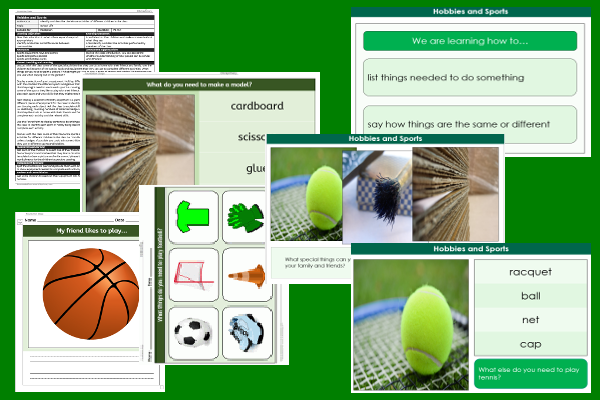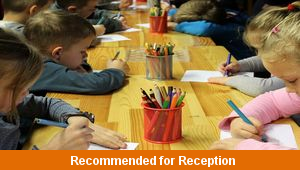Lesson Two – Hobbies and Sports

This curriculum topic teaching pack for the Foundation Stage gets the children to investigate how to identify and describe some of the special hobbies and sports that can be enjoyed and completed by different pupils in the class.
The class can practise selecting and recording lists of matching resources and materials that they need to take part in a sport or hobby with their family and friends.
Download this teaching pack including a lesson plan, classroom activities and an interactive presentation to investigate how to identify and describe some of the special hobbies and sports that can be enjoyed and completed by different pupils in the class
Activities in this teaching pack include display posters to identify objects required to complete different hobbies and sports, a template to describe a hobby or sport performed by one of the pupils in the class and a set of cards to record equipment needed to complete different hobbies and sports.
The interactive presentation gets the children to explore and and describe some of the hobbies and sports enjoyed and completed by different pupils in the class.
This lesson is part of a curriculum topic scheme of work to get the children to identify and learn classroom routines and organisation by exploring and describing information and likes and dislikes about each of their classmates. There are teaching activities for shared learning, differentiated worksheets to support independent learning and interactive presentations to introduce concepts and key skills.
-

Halving Things
Explain and model how to find and record the halves of some of the different objects that can be used at home and in school
-

School Friends
Identify and learn classroom routines and organisation by exploring and describing information and likes and dislikes for each of their classmates
-

Classroom
Identify the location and function of different objects used in the classroom and explore how to formulate rules to manage the classroom safely
-

Shape Patterns
Identify, describe and compare the sequences of geometric shapes that have been used to create a range of different patterns
